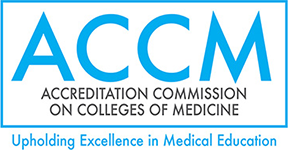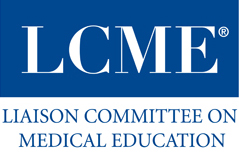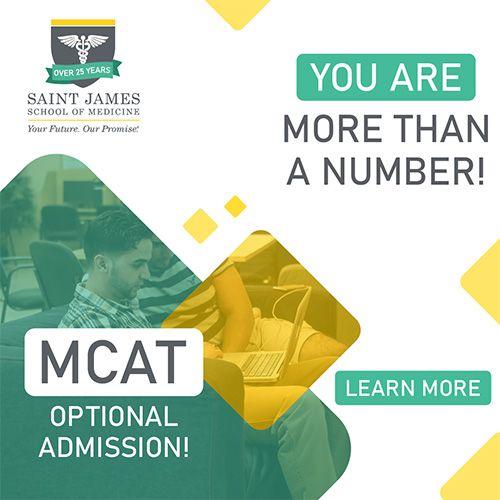As you have probably realized by now, many bodies are involved in regulating certain aspects of becoming a licensed physician in the United States and Canada. We will list the most common bodies that you will have interaction with or should be aware of as a medical student.
Association of American Medical Colleges (AAMC):
Founded in 1876, the AAMC is a not-for-profit organization serves and leads the academic medicine community to improve the health of all through the representation of:

Accreditation Council for Graduate Medical Education (ACGME):
The Accreditation Council for Graduate Medical Education (ACGME) is responsible for the accreditation of post-M.D. medical training programs within the United States. Accreditation is accomplished through a peer review process and is based on established standards and guidelines.
https://www.acgme.org/

Accreditation Commission on Colleges of Medicine (ACCM):
ACCM is a medical accreditation body whose members (Commissioners) are respected senior medical educators who, with a former senior hospital manager, work voluntarily and pro bono publico. Their work is a contribution to the global effort to assure quality medical education. ACCM serves countries where the country has no medical accreditation body of its own.
https://accredmed.org/

Association of American Medical Colleges (AAMC):
Founded in 1876, the AAMC is a not-for-profit organization that serves and leads the academic medicine community to improve the health of all through the representation of:
• All 130 accredited US and 17 accredited Canadian medical schools
• Nearly 400 major teaching hospitals and health systems, including 68 Department of Veterans Affairs medical centers in the United States
• Nearly 90 academic and scientific societies
https://www.aamc.org/

Educational Commission for Foreign Medical Graduates (ECFMG):
A private not-for-profit corporation that assesses the readiness of international medical graduates to enter residency or fellowship programs in the United States that are accredited by the ACGME through its program of certification.
https://www.ecfmg.org/

Federation of State Medical Boards (FSMB):
A national non-profit organization representing the 70 medical boards of the United States and its territories. The FSMB’s mission is to continuously improve the quality, safety, and integrity of health care through developing and promoting high standards for physician licensure and practice.
https://www.fsmb.org/

Foundation for Advancement of International Medical Education and Research (FAIMER):
FAIMER was established in 2000 by the Educational Commission for Foreign Medical Graduates (ECFMG). In partnership with ECFMG, FAIMER promotes excellence in international health professions education through programmatic and research activities.
https://www.faimer.org/

Liaison Committee on Medical Education (LCME):
The nationally recognized accrediting authority for medical education programs leading to the M.D. degree in U.S. and Canadian medical schools. The LCME is sponsored by the Association of American Medical Colleges and the American Medical Association. The U.S. Department of Education recognizes the LCME for accreditation of programs of medical education leading to the M.D. in the U.S.
https://lcme.org/

National Committee on Foreign Medical Education and Accreditation (NCFMEA):
A committee which operates under the United States Department of Education is charged with determining whether the standards of accreditation used by a foreign country to accredit medical schools offering programs leading to the M.D., or equivalent, degree are comparable to standards of accreditation applied to M.D. programs in the United States.
https://sites.ed.gov/ncfmea/

National Residency Matching Program (NRMP):
A private, not-for-profit corporation established in 1952 to provide a uniform date of appointment to positions in graduate medical education (GME) in the United States.
https://www.nrmp.org/

The Accreditation Organisation of the Netherlands and Flanders (NVAO)
was established in 2005 by the Dutch and Flemish governments as an independent accreditation organization tasked with providing an expert and objective assessment of the quality of higher education in the Netherlands and Flanders.
https://www.nvao.net/en

The World Directory of Medical Schools (WDOMS):
has been developed through a partnership between the World Federation for Medical Education (WFME) and the Foundation for Advancement of International Medical Education and Research (FAIMER). The World Directory provides a comprehensive compilation of the information previously contained in the IMED and Avicenna directories.
https://www.wdoms.org/

World Federation for Medical Education (WFME):
WFME is the global organization concerned with the education and training of medical doctors. WFME’s mission is to strive for better health care for all mankind; WFME’s primary objective is to enhance the quality of medical education worldwide, with the promotion of the highest scientific and ethical standards in medical education.
https://wfme.org/

World Health Organization (WHO):
The directing and coordinating authority for health within the United Nations system. It is responsible for providing leadership on global health matters, shaping the health research agenda, setting norms and standards, articulating evidence-based policy options, providing technical support to countries, and monitoring and assessing health trends.
https://www.who.int/

Tip #20: Be aware of all licensing and regulatory bodies in regard to your school and your education. In case of a regulatory question or issues regarding your education, these bodies may be able to answer your questions or point you in the right direction.















